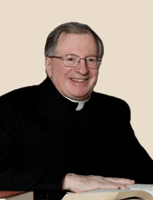The situation of the underground church, consisting of those who refuse to submit to government supervision, is more cloudy. Bishops and priests are still arrested and disappear. Meetings and pilgrimages are broken up. Most of this repression, however, occurs in rural areas at the discretion of local officials. By contrast, in the cities, registered and unregistered communities often share facilities, and underground seminarians sometimes study under the auspices of the above ground church. Pope Benedict, like Pope John Paul II before him, insists that in China there is but one Catholic Church, though with two faces.
Pope Benedicts June 30 letter to Chinese Catholics aimed at encouraging unity between the two groups of Chinese Catholics. Vatican officials have realized for many years that when the time comes for normalization of relations with Beijing, reconciliation between members of the two tendencies in the church will be a challenge. The problems facing effective unity among Chinese Catholics will lie primarily with the adjustments required of the underground church, which suffered tremendously out of loyalty to Rome after the Peoples Republic of China set up its structures for regulation of religion in the 1950s.
The transition to unified church practice will be traumatic for those who have suffered to preserve the old ways. Un-registered communities have also developed a style of independence and resistance vis-à-vis authorities that may make unified church governance as difficult as regulation by the Chinese political authorities. Accordingly, the pope put particular weight on pardon and reconciliation and charity between those with different approaches to government regulation.
The letter also seemed intent on conveying to the Chinese faithful, especially in the unregistered church, that the pope genuinely sympathizes with them and understands that for both individual believers and the institutional church religious freedom is the necessary condition of normalization. In particular, he wrote, The Holy See would like to be completely free to appoint bishops. Con-sidering recent developments of the Church in China, he added, I trust that an accord can be reached with the government regarding appointments.
The popes pastoral concern for the church in China was most evident in his plea for dialogue with both the local church and the Chinese government. Referring to the redrawing of diocesan boundaries by the government, for example, Benedict wrote, I wish to confirm that the Holy See is prepared to address the entire question...in an open and constructive dialogue with the Chinese episcopacy andwhere opportune and helpfulwith government authorities.
In the past, some had assumed that the resumption of diplomatic relations between the Holy See and the Peoples Republic would be the principal means both for addressing pastoral problems in the Chinese church and for resolving complaints about violations of religious liberty by the government. The letter, however, seems to envision the two dialogues running in tandem, so that the dialogue with Chinese bishops will inform talks with the government. How this would take place is unclear. Perhaps a proposal for assigning an apostolic delegate or other special envoy in Beijing might be revived. Or, as others have proposed, tours of the Chinese church by high-level foreign prelates, with freedom to move about as they choose, might serve the same purpose.








